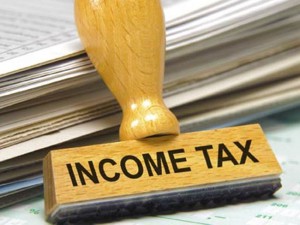We Don’t Withhold Refunds or Scrutinize Small Taxpayers: CBDT
 NEW DELHI: The Income Tax Department does not withhold refunds of small taxpayers nor does it generally select their tax returns for scrutiny and detailed analysis, the Central Board of Direct Taxes (CBDT) has said in an attempt to dispel two of the biggest concerns of this category of assessees.
NEW DELHI: The Income Tax Department does not withhold refunds of small taxpayers nor does it generally select their tax returns for scrutiny and detailed analysis, the Central Board of Direct Taxes (CBDT) has said in an attempt to dispel two of the biggest concerns of this category of assessees.
CBDT Chairperson Anita Kapur said she would like to bust the myth and “fear psychosis” that once people file their tax returns, they automatically come on the radar of the taxman and then they are tracked.
Ms Kapur, in an interview to PTI, said in cases of neatly filed electronic income tax returns (ITRs), the department has set a deadline of six months for refunds to be generated and sent to the taxpayer.
“We tell the taxpayers that in e-file returns we take a maximum of six months to process it if you have a clean return and no TDS mis-match. But then there is a misinformation campaign that we hold refunds. I will say we don’t hold refunds for small taxpayers,” said the chief of CBDT, the apex policymaking body of the I-T department.
“For large taxpayers, if it is a scrutiny case, then we have to hold it as per law till the scrutiny assessment is over but not for small taxpayers if their ITRs are all correct,” she said.
“We are not interested in holding up small returns.”Ms Kapur said her second area of concern over which she would like to put the record straight is the version that taxman puts the cases of small and middle-category taxpayers on the scrutiny list which entails submission of additional documents and visits to the assessing I-T officer.
Citing an example, she said no tax inspector can just go to a person, like a fruit-seller, and say he/she has to file his I-T return or that his/her return is going to be scrutinized.
“We are told that people are scared that once tax department knows about them after they have done filing (of ITR) then they are tracked and followed and they stay on the radar of the I-T department. We want to tell the taxpayers that only in less than one per cent cases you will be asked to come to the tax department for scrutiny of your case.”
“And even this less than one per cent category is not discretionary selection by the assessing officer. It is a computer-based programme where risk parameters are fed in, algorithm is developed, and based on that cases get selected,” she said.
The CBDT chief said that when these parameters are built in, they are done in a manner that “in fact, small taxpayers don’t get selected and these parameters are to detect big tax evasion”.”So, small taxpayers should not be scared of entering the department, doing e-filing and even manual filing,” she said.
This kind of a fear psychosis, Ms Kapur said, is totally “unwarranted”.
“Now, when we are holding out this assurance to you that only less than one per cent cases I am going to scrutinize then I am not looking at small taxpayer. The tax evasion probability of a small taxpayer is less and hence he is not selected for scrutiny.”
“So, if a small taxpayer is willingly paying his taxes, we assume that why would he want to evade taxes? For us, it’s a good situation. This is one way of doing things for the small taxpayer,” she added.

